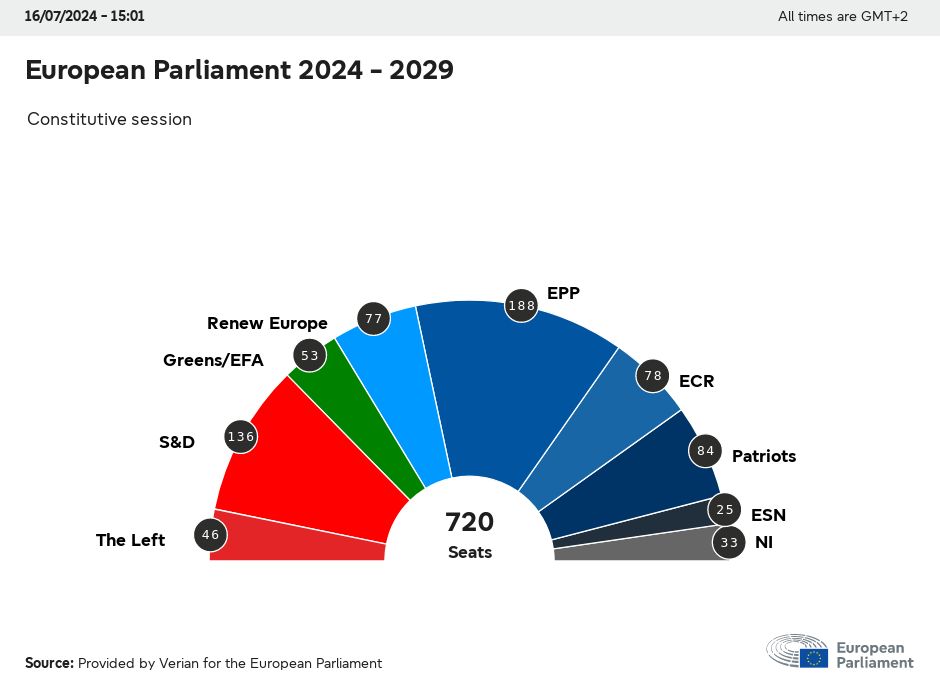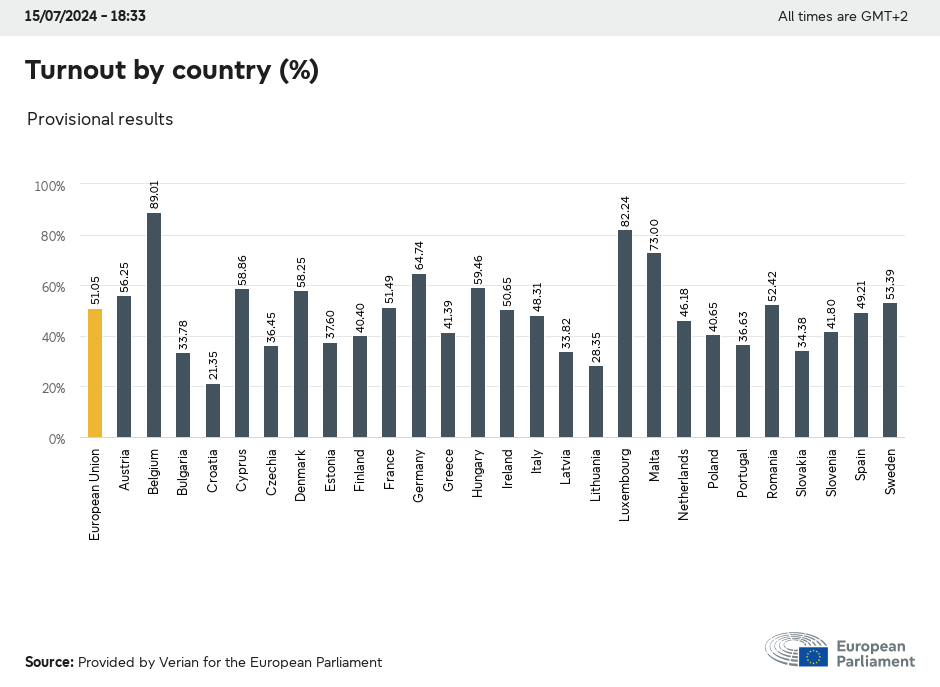During the third week of July, the figures who will lead the future of the European Union (EU) were decided after the first plenary sessions of the newly formed Parliament, as a result of June’s elections.
Roberta Metsola, from the Group of the European People’s Party (Christian Democrats), and Ursula Von der Leyen, from the European People’s Party (EPP), once again hold the positions of President of the European Parliament and President of the European Commission, respectively.
While both have advocated for policies that benefit the development and adoption of electric mobility, the noticeable presence of far-right Members of the European Parliament (MEPs) could pose a barrier to progress in the coming years.
Haluk Sayar, board member of AVERE Europe and president of AVERE Turkey, opines after the results of the parliamentary elections.
Sayar warns that far-right parties in Europe could hinder the necessary progress to achieve emission reduction targets.
“They could advocate for limiting resources allocated to combat climate change with policies that prioritize economic growth and national sovereignty,” Sayar says.
Howaver, he continues: “According to a report from the think tank E3G, the expected gains of the far-right in the recent European Parliament elections are not anticipated to have a significant impact on the EU’s green energy transition by 2030.”
It is worth mentioning that, in addition to recent political trends, the war between Ukraine and Russia, and especially the economic competition between China and the West, could pose significant obstacles to the EU’s climate change efforts.
How is the European Parliament composed?
In the recent European Parliament elections, the 720 seats were distributed among various political groups, reflecting a plurality of forces and trends in the region.
The Group of the European People’s Party (Christian Democrats) has consolidated as the majority force, obtaining 188 seats.
In second place, the Group of the Progressive Alliance of Socialists and Democrats in the European Parliament has secured 136 seats, consolidating its influence in the parliament.
The Patriots for Europe group has achieved significant representation with 84 MEPs, followed by the European Conservatives and Reformists Group, which obtained 78.
The Renew Europe Group, with 77 seats, and the Group of the Greens/European Free Alliance, with 53, will also play key roles in legislative decisions.
Regarding groups with lesser representation, The Left group in the European Parliament – GUE/NGL has secured 46 seats.
The NI group, composed of non-inscrit members, has 34 MEPs, while the Europe of Sovereign Nations has obtained 25.

Distribution of MEPs by countries
Germany has achieved the largest national representation at these elections with 96 seats, where the Christian Democratic Union of Germany/Christian Social Union in Bavaria (CDU/CSU) obtained 30.00 percent of the votes.
Additionaly, France has obtained 81, with the National Rally reaching 31.37 percent of the votes, followed by Italy with 76 seats, where Brothers of Italy obtained 28.75 percent of the votes.
In Spain, with 61 seats, the People’s Party won with 34.21% of the votes. Poland secured 54 seats, with the Civic Coalition (Civic Platform, Modern, Polish Initiative, Green Party) obtaining 37.06 percent of the votes.
In the Netherlands, with 31 seats, the GL-PvdA coalition (GreenLeft, Labour Party) obtained 21.09 percent of the votes.
Romania secured 33 seats, with the PSD-PNL alliance (Social Democratic Party, National Liberal Party) reaching 48.55 percent of the votes.
Hungary, with 21 seats, saw the Fidesz-Hungarian Civic Alliance-Christian Democratic People’s Party coalition achieve 44.82 percent of the votes.
Portugal and Sweden, both with 21 seats, had the Socialist Party and the Social Democrats as the main winners with 32.75% and 24.77 percent of the votes respectively.
In the Czech Republic, with 21 seats, ANO 2011 obtained 26.14 percent of the votes. Denmark secured 15 seats, with the Socialist People’s Party reaching 17.42 percent of the votes.
Ireland achieved 14 seats, where Fine Gael obtained 20.79 percent of the votes. Austria, with 20 seats, saw the Freedom Party of Austria achieve 25.36 percent of the votes.
Belgium, with 22 seats, had the Vlaams Belang achieving 14.50 percent of the votes. Greece, with 21 seats, saw New Democracy (Νέα Δημοκρατία) achieve 28.31 percent of the votes.
Croatia obtained 12 seats, with the Croatian Democratic Union achieving 34.60 percent of the votes. Finland, with 15 seats, saw the National Coalition Party achieving 24.80 percent of the votes.
In Slovakia, with 15 seats, Progressive Slovakia obtained 27.81 percent of the votes. Lithuania, with 11 seats, saw the Homeland Union-Lithuanian Christian Democrats achieving 21.33 percent of the votes. Latvia, with 9 seats, saw New Unity achieving 25.09 percent of the votes.
Slovenia, with 9 seats, saw the Slovenian Democratic Party achieving 30.59 percent of the votes. Bulgaria, with 17 seats, saw the Citizens for European Development of Bulgaria-Union of Democratic Forces coalition achieving 23.55 percent of the votes.
Estonia, with 7 seats, saw the Isamaa Party achieving 21.50 percent of the votes.
Finally, Cyprus, with 6 seats, saw the Democratic Rally achieving 24.78 percent of the votes.









